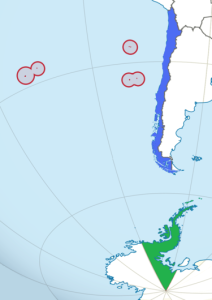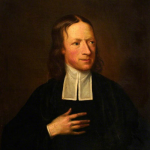Our dear friend Lianggi Espinoza from Chile continues his dialog with us around our Dec 14 post, “Out of the Mouth of Bono: Economics and Freedom.” In Lianggi’s latest comments he writes:
 About the interview with Friedman. The tenth commandment is do not covet. And communists do that. Their system is based on coveting and today we are seeing the consequences of that.
About the interview with Friedman. The tenth commandment is do not covet. And communists do that. Their system is based on coveting and today we are seeing the consequences of that.
I’ll tell you a little bit about Friedman in Chile: his economic politics have principally enriched two groups 1) Students that bring his system to Chile, and 2) Very small sectors of power and foreign trade that today have the right to exploit the country, paying almost no taxes. In the macroeconomic sense Chile is a strong country, but in international polls it’s one of the most unequal (in terms of income) in the world. And all this is shown in the recommendations that Friedman sent to Pinochet in 1975. Chile was the “laboratory” that tested this model in Latin America. It’s a prosperous nation in the big picture but profoundly unequal, oppressive and lacking economic freedom.
If you want clarification, I believe the ideas of economic freedom in the gospel. But I believe today we need an emphasis on the year of Jubilee, forgiving debt, concern for the needs of the poor, the protection of the vulnerable, the dignity of fair work, the disassembling of a labor system that pays no attention to the family, access to education, etc.
Thank you for your blog and responses. Hugs from Chile, Darrow. I love you a lot.
As we have discussed before in the blog, and in dialog with Lianggi, what he is writing about is more what I would call crony capitalism or hedonistic capitalism. These manifestations of “capitalism” are aberrations of a free-market system, aberrations that lack a moral framework. Unbridled greed, narcissism, and hedonism all lead to the economic system that we see in so much of the world today, a system that rapes creation and is unjust as it relates to the larger human family.
I agree with Lianggi’s reflection, “But I believe today we need an emphasis on the year of Jubilee, forgiving debt, concern for the needs of the poor, the protection of the vulnerable, the dignity of fair work, the disassembling of a labor system that pays no attention to the family, access to education, etc.” Herein is the moral imperative needed for free markets to be free markets and not slave markets.
In Discipling Nations: The Power of Truth to Transform Culture, we describe in more detail the moral and metaphysical conditions for human flourishing.
Max Weber articulated the Protestant work ethic. Weber grasped that ideas have consequences. He rejected the Marxist-materialist’s assumption that “matter is all that matters.” Weber understood that the worldview undergirding the Protestant ethic was what led to the transformation of nations from poverty to wealth.
While Weber remains a giant in the social sciences even today, it was left to John Wesley (1703–1791), the English revivalist and social reformer, to distill the essence of the as-yet-undiscovered work ethic into an effective rallying cry. Working in a context much larger than today’s shallow consumer society, Wesley urged the Christian s of his day:
s of his day:
Work as hard as you can; save as much as you can; give as much as you can!
Wesley’s three commands refer to three basic principles of biblical economics—diligence (capital formation), thrift (capital savings), and charity (capital sharing). Emerging from the Judeo-Christian worldview, biblical economics is not just about hard work. It reflects a number of critical assumptions: freedom (free markets), private property, personal and communal responsibility, stewardship of creation, and justice under the law. Saving, for instance, eschews immediate gratification and shows confidence in the future, that history is going somewhere. Giving, meanwhile, reflects our God-ordained responsibility to think beyond ourselves, to help first the family of God and our fellow human beings, and to steward creation.
Wesley’s model of working, saving, and giving is triadic. Each component feeds off the others. Unlike so much of what passes for contemporary capitalism (which, in many cases, would be better labeled “hedonistic consumerism,” “predatory capitalism,” or “crony capitalism”) the Protestant ethic is other-centered in both conception and function. It serves not primarily the self but God, others, and the future. It lays a solid foundation for business and economic enterprise. While it appreciates physical wealth, it is not mainly about money. The fact that so much of modern culture is money-mad shows how far we have strayed from this ethic.
As we saw earlier, the word economics comes from the Greek word oikonomia (οικονομια), which means “stewardship of the house.” It reflects a thriving moral philosophy, even if it has been largely forgotten today. God cares about all spheres of life, including the economic one. Our increasingly fragmented world tends to compartmentalize life. This is not healthy. Let’s remember that the principles that enliven the economic sphere also animate the spiritual and moral spheres.
So, Lianggi, thanks for your friendship and dialog with us. I hope you see in this response a full-orbed moral frame for the creation and sharing of wealth within a context of the stewardship of creation.
- Darrow Miller





